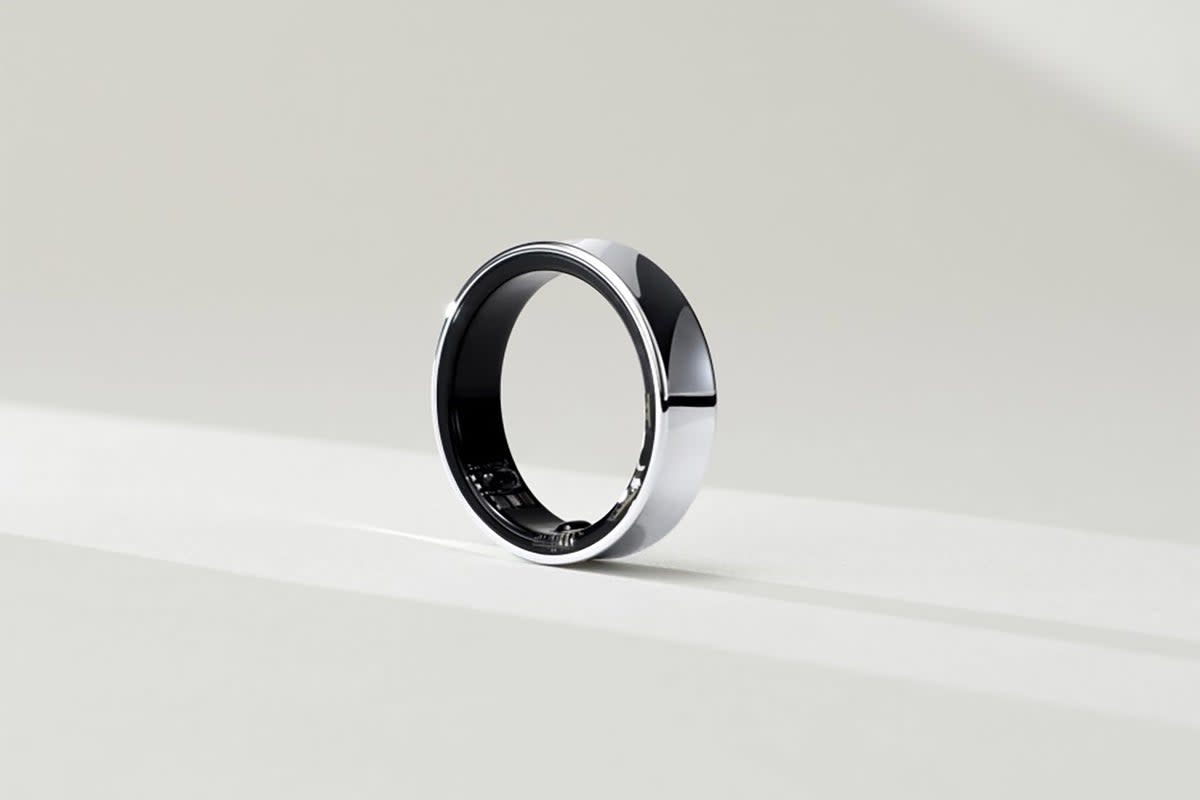Samsung Galaxy Ring uses AI to keep track of your health and fitness

Samsung showed its upcoming Galaxy Ring at the Barcelona tech show Mobile World Congress (MWC ) 2024 — and claimed it was the “future of wellness“.
This is according to a Samsung blog written by its chief medical officer Dr Hon Pak.
“As a new addition to our wearables portfolio, Galaxy Ring will offer users an all-new way to simplify everyday wellness, empowering them with greater insights and more ways to understand themselves day and night,” Dr Pak wrote.
The Samsung Galaxy Ring, unsurprisingly, looks quite similar to the best-known smart ring from Oura. It’s a sleek and simple band of silver, inside which sits a ring of plastic that holds the wearable’s sensors. It will also be available in gold and black.
However, unlike a standard Samsung product reveal, there’s still a certain sense of mystery around the Galaxy Ring as we don’t yet know all the tech inside.
This is not too alarming because, as Dr Pak explained, the Galaxy Ring won’t be available until “later this year”.
It’s expected to have heart rate, motion and temperature sensors. These will track sleep and exercise, stress and monitor a person’s menstrual cycle.

You’ll also get a My Vitality score to indicate how run down you might be and how ready for exercise you are.
What we’ve heard so far can be achieved by the Oura Ring’s hardware, the first iteration of which was released in 2015. As Oura’s website explains, the Oura Ring uses three main sensors. These are an optical heart rate reader, temperature sensor, and “3D” motion sensor.
There are not that many additional sensors Samsung could apply to the Galaxy Ring, either. GPS is too power-consuming, for example, and a GPS chip with antenna is likely too large to fit in such a svelte ring design.
Dr Pak’s blog appears to suggest Samsung will rely on the power of its existing fitness platform, Samsung Health, and the company’s favourite current subject, AI, to get an edge.
“With the intelligence of AI, the most transformative technology of the century, users will receive more personalised insights and tailored health experiences through Samsung Health’s extensive global dataset from 64M monthly active users,” Dr Pak said.
This will come in the form of Booster Cards, which will pop up in the companion app on your phone. These will offer advice and insights on your health, and hopefully go beyond simply suggesting you get more sleep.
Samsung said the cards “will be made available on Samsung Health within 2024”.
There’s no word on how much a Galaxy Ring will cost, but an Oura Ring offers a reasonable guide. Its rings start at $299 (£236). While UK buyers have to order from the US presently, such a cost would typically equate to UK pricing between £279 and £329.
Oura also charges $5.99 (£4.73) a month for access, without which a ring owner only gets to see the most basic of stats.
We’ll no doubt hear more about the Galaxy Watch’s full details later this year before its release.


